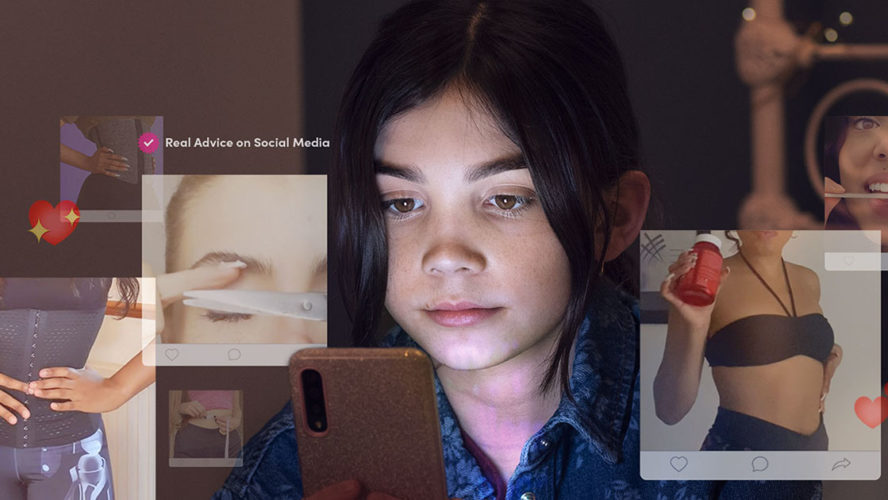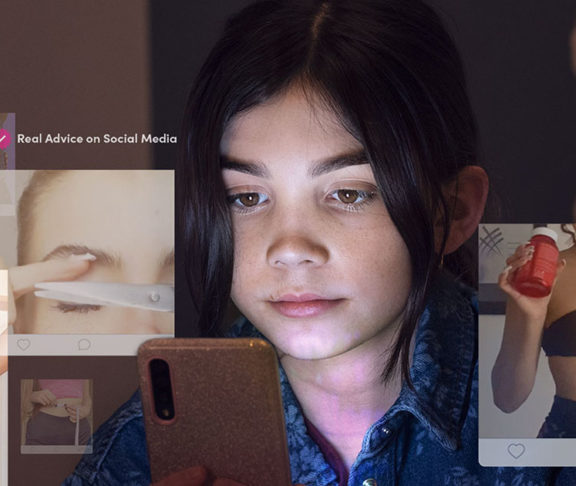
Dr. Vanessa Lapointe
Registered Psychologist
The new Dove #DetoxYourFeed campaign is confronting harmful beauty advice found online.
The world is changing at a phenomenal pace. Just two decades ago, the internet was in its infancy, there was no 24-hour news cycle, and there was certainly no TikTok. Social media is just one of the ways technological advancements are having very real impacts on how humans are evolving.
For teens, social media dictates how they create connections and even how they see themselves. Built to disseminate information, it’s instead had a Pandora’s box effect. From opening virtual doors to experiencing new places to providing insight into social issues, social media has acted as a platform for change, but it’s also created a culture of comparison and inaccuracy. Even for adults who can distinguish facts from the inaccurate, social media can still feel dizzying. For teenagers, this is amplified, and for girls, in particular, it’s directly affecting their self-esteem.
“Social media has become a primary vehicle by which youth are connecting with the world around them,” says Dr. Vanessa Lapointe, a registered psychologist. “When those connections are flavoured by toxic beauty advice and content that make a person question their worth, it becomes a primary driving influence on how they feel about themselves at a time when it will be imprinted on how they emerge into adulthood.”
Dove Self-Esteem Project’s #DetoxYourFeed campaign is an initiative aimed at confronting the harmful beauty advice normalized for teens scrolling their social feeds.
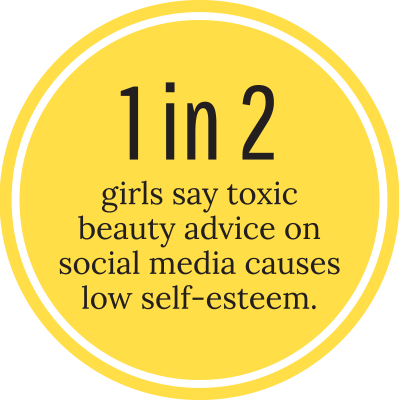
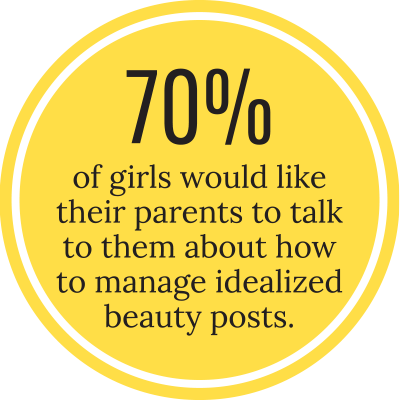
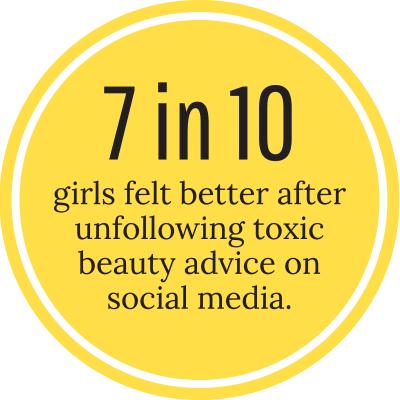
The Impact of Dove
The Dove Self-Esteem Project is the largest provider of body confidence education globally, having reached more than 82 million young people across 150 countries to date.
By 2030, Dove will have helped 250 million kids and teens boost their self-esteem through educational programming and no-cost resources.
#DetoxYourFeed empowers girls to look critically at online beauty trends
The Dove Self-Esteem Project has been fighting to end narrow definitions of beauty which have been threatening the self-esteem of young girls. A recent Dove Self-Esteem Project survey found that one in two girls say toxic beauty content on social media causes low self-esteem yet admit to spending more than an hour a weekday on it — more time than they spend with their friends outside school. Forty percent of girls say they have or would try a beauty trend they saw on social media, while the same number note social media is the first place they turn to for beauty advice.
Dove Self-Esteem Project’s #DetoxYourFeed campaign is an initiative aimed at confronting the harmful beauty advice (e.g., thinspo, fitspo, electric cosmetic surgery, etc.) normalized for teens scrolling their social feeds. “It’s about being there for our children and stepping in to ensure social media is a better, more positive experience for youth,” says Dr. Lapointe. The campaign provides parents with the knowledge, tools, and resources to navigate conversations with girls around social media.
The Detox Your Feed: The Parents’ Guide is a powerful three-minute educational film highlighting the statistics and significant impact these videos have on girls. The film also encourages parents to facilitate conversations about harmful beauty advice.
Dove’s Confidence Kit is an empirically reviewed, online toolkit guiding adults in approaching these conversations, helping parents understand how to bring awareness to what their girls are watching and how they — as participants — might be contributing to the online world themselves.
Despite the stats, the future is bright
The youth of today are recognizing these issues and seeking help. Seventy percent of girls want their parents to talk to them about managing idealized beauty content.
“The majority of girls say it would be better if they spent less time on social media in terms of their development, self-esteem, sense of self — they get it,” says Dr. Lapointe. “The #DetoxYourFeed campaign comes at such a brilliant time, when there is already an uptick in the desire to look and feel different, not just from adults, but from within our children.”
Social media isn’t going anywhere, so we can’t expect toxic beauty advice to disappear anytime soon. As adults, we can help youth interpret what they’re seeing and arm them with the knowledge to recognize what they want to consume and the strength to act when their feed doesn’t represent this. “There’s a difference between knowing everything and being everything to your child. The #DetoxYourFeed campaign empowers us to focus instead on what we can inherently provide our children. We can be the leaders they are looking to us to be,” says Dr. Lapointe.
